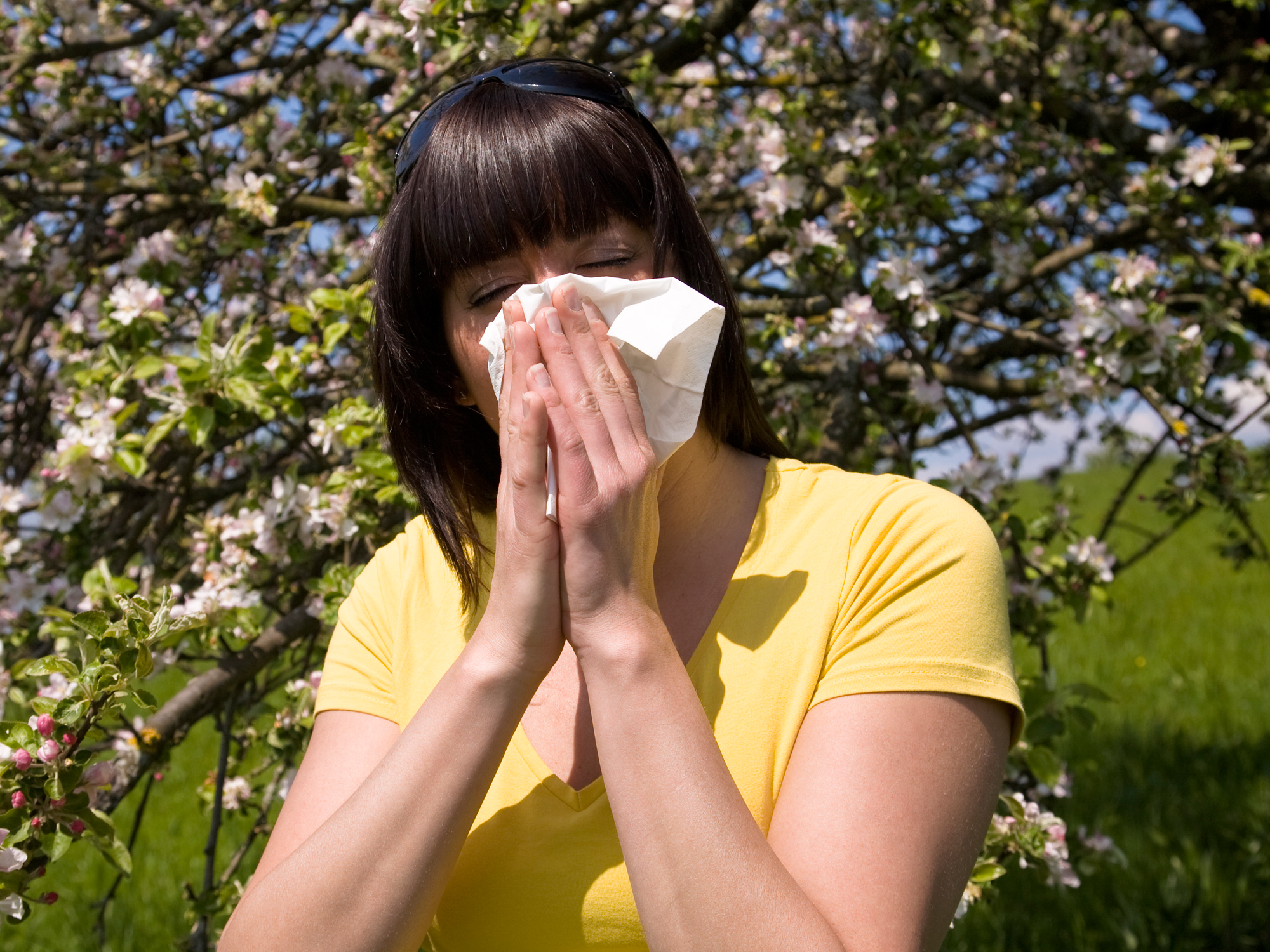Get Easy Health Digest™ in your inbox and don’t miss a thing when you subscribe today. Plus, get the free bonus report, Mother Nature’s Tips, Tricks and Remedies for Cholesterol, Blood Pressure & Blood Sugar as my way of saying welcome to the community!
Hay fever help without the foggy head or racing heart

As allergy season approaches, you’ll want to do everything you can to prepare your body for the onslaught of allergens coming its way…
You can start by taking a few simple steps to strengthen your immune system, like eating a healthy diet and stocking up on natural immune-boosters and antihistamines like vitamin C, bromelain and quercetin.
But, there’s one more, easy step you’ll want to take to keep your sniffling and sneezing to a minimum this spring…
And that’s getting a daily dose of probiotics.
Hopefully you already have some on hand right now — considering the major news I shared recently about what happens to your brain on probiotics…
Well, the benefits definitely don’t stop there.
But, you should know, not just any probiotic will take care of your allergies. Researchers recently identified a specific probiotic combination you need to take if you want to breathe free and easy all allergy season…
Probiotic help for hay fever
Researchers from the University of Florida discovered that a specific trio of probiotics can help lessen the symptoms of hay fever.
Hay fever, which is the culprit behind most seasonal allergies, basically feels like a cold that won’t go away — runny nose, itchy eyes, congestion, sneezing. It’s caused by the pollen and other airborne allergens released by plants and fungi when they wake up in the spring. It can also be caused by indoor allergens like dust mites or pet dander.
But whatever’s behind your hay fever, it appears probiotics can help…
UF researchers studied the effects of three probiotic strains on a group of 173 adults with seasonal allergies. Half of the adults took the probiotics and the other half took a placebo.
After eight weeks, researchers found that the group that took the probiotics had fewer allergy-related nasal symptoms and were better able to function in their day-to-day life.
Now, this isn’t the first time researchers have demonstrated the allergy-fighting effect of probiotics. Previous studies have shown that probiotics can positively impact your immune system’s response to allergens. But not all probiotics are equally effective. And this time they actually identified a specific combination of probiotics that is…
The right probiotics to relieve seasonal allergies
The probiotic they gave study participants included a combination of lactobacilli and bifidobacteria strains. More specifically, participants took two probiotic capsules per day — one after they ate their breakfast and one after they ate their dinner. Each capsule contained:
- 2 billion CFU of Lactobacillus gasseri
- 15 billion CFU of Bifidobacterium bifidum
- 15 billion CFU of Bifidobacterium longum
That came to a total of 1.5 billion CFU per probiotic capsule. You can find a similar combination of probiotics in most health foods stores. This specific trio of probiotics is sold under the brand name Kyo-Dophilus. You can find it in other popular probiotic brands as well, although you may notice a few other probiotic strains slipped in there.
If you take this trio of probiotics daily, you should feel much better — and safer — this allergy season. That’s because, if you start the probiotic regimen, you won’t have to suffer through the annoying side effects of antihistamines, like sleepiness and brain fog, or the dangerous ones, like increased blood pressure. Instead, all of the side effects from probiotics you’ll experience are positive ones, like melting fat, fighting disease and keeping your body young.
Sources:
-
“Allergies? Probiotic combination may curb your symptoms, new study finds.” MedicalXpress. https://medicalxpress.com. Retrieved March 2, 2017.
-
C. Dennis-Wall, et al. “Probiotics (Lactobacillus gasseri KS-13, Bifidobacterium bifidum G9-1, and Bifidobacterium longum MM-2) improve rhinoconjunctivitis-specific quality of life in individuals with seasonal allergies: a double-blind, placebo-controlled, randomized trial.” The American Journal of Clinical Nutrition. March 2017; 105(3): 758-767.
-
“Hay fever.” The Mayo Clinic. http://www.mayoclinic.org. Retrieved March 2, 2017.












